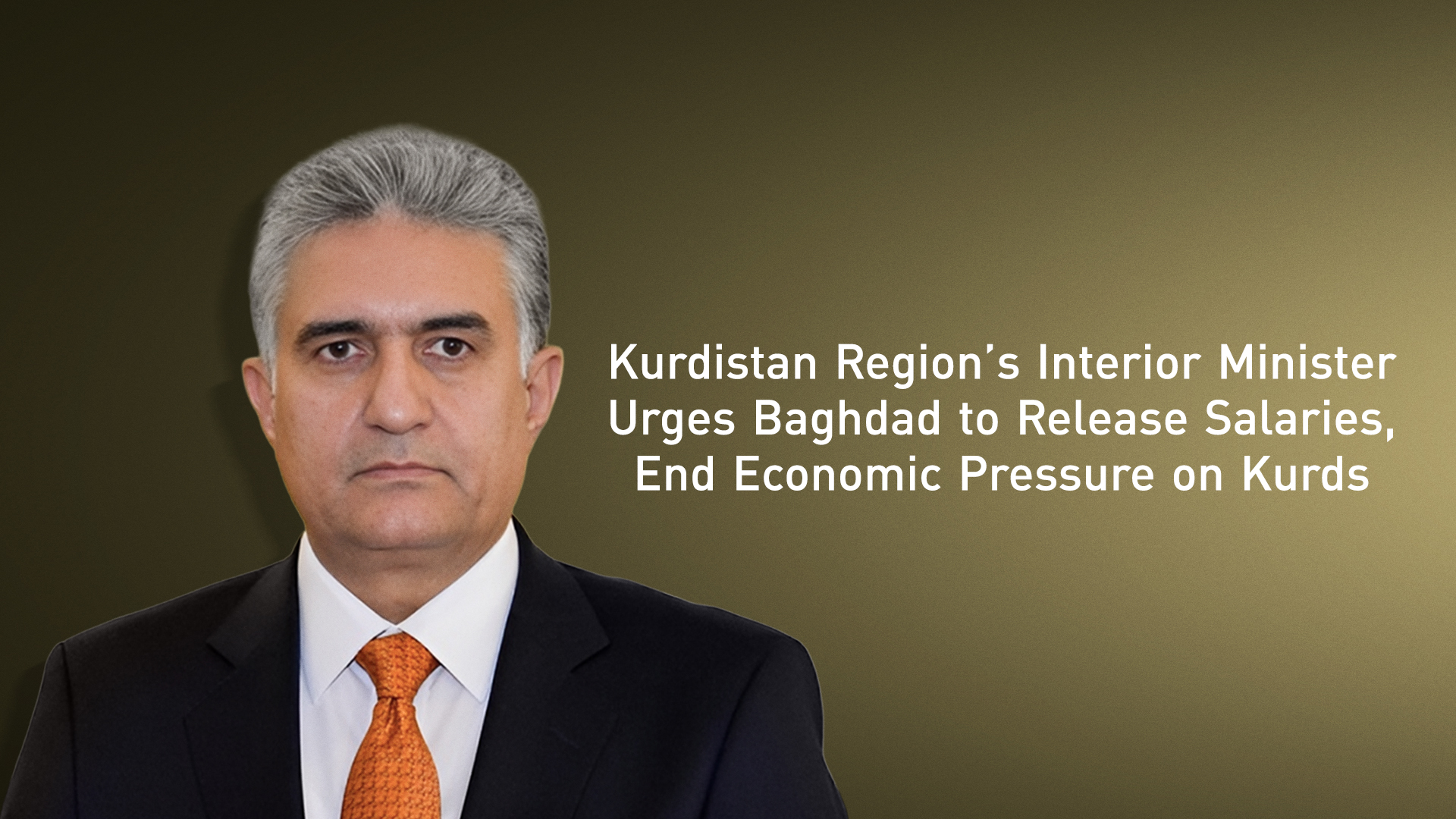Kurdistan Region’s Interior Minister Urges Baghdad to Release Salaries, End Economic Pressure on Kurds
Ahmed warned that cutting salaries and budget allocations has become a form of collective punishment against the region. “This financial blockade is a catastrophe for the people of Kurdistan,” he said. “It is time to resolve this issue within the framework of the constitution.”

ERBIL (Kurdistan24) — The Kurdistan Regional Government (KRG) has fulfilled all of its obligations toward the federal government of Iraq and deserves to receive public salaries without delay or conditions, KRG Interior Minister Rebar Ahmed said on Sunday.
Speaking at a press conference, Minister Ahmed addressed the ongoing salary crisis in the Kurdistan Region, calling it “a long and painful saga” and stressing that paying salaries is a basic right of the Kurdish people. “Our relationship with the Iraqi government is based on the constitution,” he said. “We must return to constitutional and legal frameworks and put an end to policies that punish the people of Kurdistan.”
Ahmed warned that cutting salaries and budget allocations has become a form of collective punishment against the region. “This financial blockade is a catastrophe for the people of Kurdistan,” he said. “It is time to resolve this issue within the framework of the constitution.”
The minister confirmed that the KRG had implemented all commitments it made to Baghdad, including an agreement approved by the KRG Council of Ministers that, although outside the legal framework, was made in good faith to ensure public salaries are paid. He called on the federal government not to impose additional restrictions or conditions.
Regarding the disputed territories referenced in Article 140 of the Iraqi constitution, Ahmed highlighted ongoing threats to religious and ethnic minorities in those areas—including Yazidis, Christians, and Shabaks—citing efforts to alter the region’s demographic makeup. He urged the international community and the Iraqi federal government to intervene and set boundaries to prevent demographic changes.
He added that the primary objective of the recent Sinjar agreement is to enable displaced residents to return to their homes and to prevent further demographic manipulation.
Addressing the recent drone and rocket attacks targeting the Kurdistan Region, Ahmed said a joint technical committee between the KRG and the federal government is investigating which armed factions in Iraq are responsible for the attacks. He noted that the drones' origin and targets are known, but the KRG is awaiting the findings of the joint investigation and expects a transparent, fair report and accountability for those responsible.
Since early July, the Kurdistan Region has suffered more than 20 drone and rocket attacks, nine of which targeted key oil installations such as Khormala, Khor Mor, Sarsang, Atrush, Bai Hassan, Peshkhabur, Tawke, and Hunt Oil fields. Other attacks struck security sites and airports.
On July 28, Iraqi National Security Advisor Qasim al-Araji led a delegation to Erbil, where he was received by Minister Rebar Ahmed. In a joint press conference, al-Araji condemned the attacks, saying they harm Iraq’s reputation and economy. He pledged that the perpetrators would be held accountable.
“The drone strikes on the Kurdistan Region damage Iraq’s national image and economy,” al-Araji said. “We strongly condemn these attacks and affirm that those behind them will face justice.”
